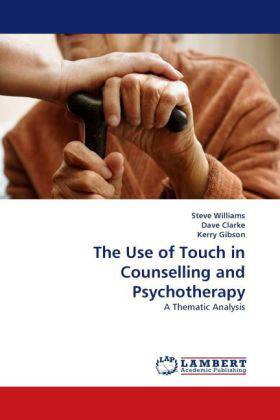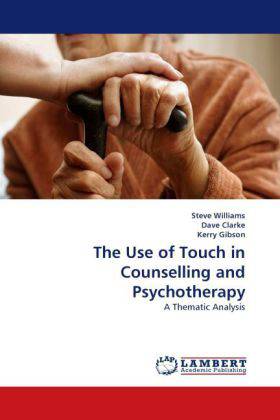
- Afhalen na 1 uur in een winkel met voorraad
- Gratis thuislevering in België vanaf € 30
- Ruim aanbod met 7 miljoen producten
- Afhalen na 1 uur in een winkel met voorraad
- Gratis thuislevering in België vanaf € 30
- Ruim aanbod met 7 miljoen producten
Zoeken
The Use of Touch in Counselling and Psychotherapy
A Thematic Analysis
Steve Williams, Dave Clarke, Kerry Gibson
Paperback | Engels
€ 86,45
+ 172 punten
Omschrijving
The use of touch in counselling and psychotherapy is rarely spoken of. A contentious topic, there is little research on therapists' current practices and views, and almost none relating to work with younger clients. This book reveals working therapists' practices, beliefs and understandings of the use of touch in therapeutic contexts with children, adolescents and adults. Six broad themes were identified: the meaning of touch; risks, fears and concerns; power and control issues; contracting, consents and note-taking; the raising of consciousness; and to touch or not to touch. Decisions as to whether or not to use touch were found to be complex, informed by a wide range of societal, cultural, methodological and philosophical discourses, as well as via personal experience and an understanding of potential impact on the client. Clients with abuse issues, work with children, and working cross-culturally were all identified as specific areas to consider. This book may be of use to counsellors, psychotherapists, supervisors and ethics committees, informing ethical practice, and decision making. It may also be helpful for training purposes.
Specificaties
Betrokkenen
- Auteur(s):
- Uitgeverij:
Inhoud
- Aantal bladzijden:
- 160
- Taal:
- Engels
Eigenschappen
- Productcode (EAN):
- 9783844304282
- Verschijningsdatum:
- 8/02/2011
- Uitvoering:
- Paperback
- Formaat:
- Trade paperback (VS)
- Afmetingen:
- 152 mm x 229 mm
- Gewicht:
- 244 g

Alleen bij Standaard Boekhandel
+ 172 punten op je klantenkaart van Standaard Boekhandel
Beoordelingen
We publiceren alleen reviews die voldoen aan de voorwaarden voor reviews. Bekijk onze voorwaarden voor reviews.








